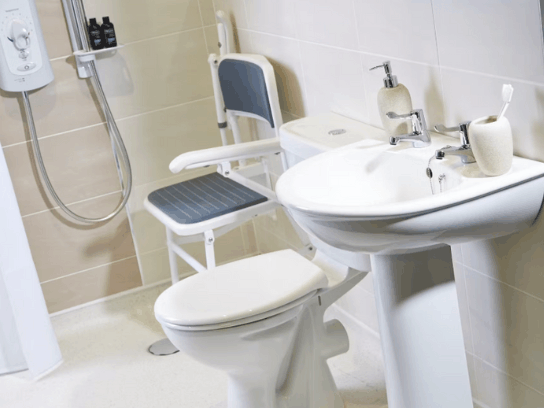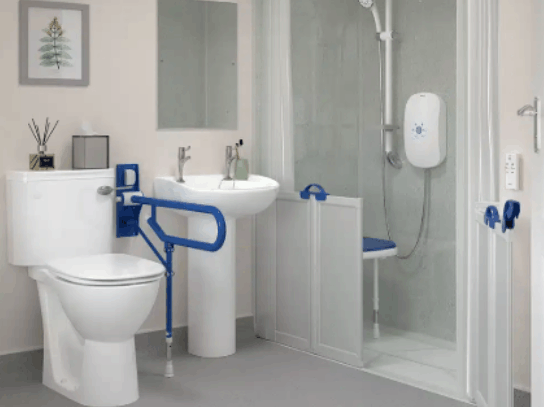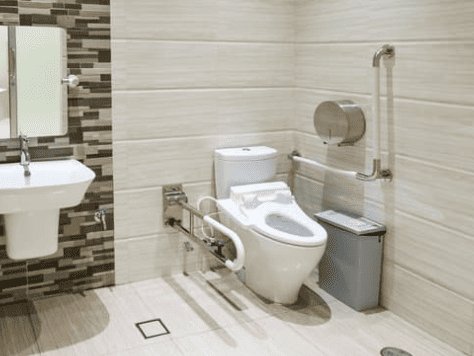When you have a mobility issue, it can be difficult to find a home that has all of the disabled facilities that you need. As a result, finding a home often means having to implement home adaptations to make sure that your house serves you. These adaptations can look like anything from widening doors to remodelling the bathroom.
Due to the extent of some of these jobs, especially remodelling the bathroom, the price tag attached can be quite severe. On average, it is estimated that a disabled bathroom or a wet room costs 20% more.
But, for some people, there are ways around this. The UK Government has put a scheme in place to ensure that people can make their homes more accessible.

Within the UK, all local council authorities have Disabled Facilities Grant schemes available. The idea of these disabled grants is that they are there to help provide disabled persons with household adaptations that cost over £1,000. Adults and children are welcome to apply for the Disabled Facilities Grant but what adults will receive is dependent on their income and savings (it is means-tested).
Most local authorities will have additional grants for disabled facilities. These will usually help people with purchases under £1,000 and will typically not be means-tested (which means they are affected by your income and savings).
If you are a housing association tenant, you will likely find that the housing association will handle any necessary adaptations slightly differently than if you were living in a council house or a privately rented home.
There are also some local charities that will help to pay towards adaptations in the case that your local council can't provide you with help through the Disabled Facilities Grant.
Check out our post “How much does a disabled wet room cost”.
If you are the tenant, landlord or owner occupier of a building, then you can apply to your local council for the Disabled Facilities Grant. It is a means-tested benefit, and can cover the cost of home adaptations up to £30,000 in England, or £36,000 in Wales. Sometimes, the local authority might even pay more than this if they believe that providing you with the necessary financial assistance now will save them money in the long term.
Should you, as a disabled tenant or homeowner, opt to apply for this grant, you must make sure that no work starts before the grant period begins. The DFG will not cover work that has already started.
An additional stipulation to this grant, is if you are a disabled tenant, you must intend to live at the property for another five years minimum. In some circumstances, if you leave the house before a set period of time, known as the grant period, you will have to pay the local authority back.
The assessment period will look at your household income. It will not include benefits, but it will look at any ISAs, premium bonds or other savings. Any savings over £6,000 will impact how much of a grant you're eligible for.

Prior to getting your grant approved, you will likely find that you'll need to undertake an occupational therapist assessment. This will allow the local authority to assess your needs, whether you are physically disabled or otherwise.
The payments for the DFG are issued once you and your local authority agree on the completed work. This can often cause small issues, as a lot of builders and tradesmen require a deposit before they can agree to the job. But, if you work with the right professionals, it should be no issue. Contact professionals like Bath Vision today to discuss working with DFG to get your bathroom remodelled!
You might find that your local council has an approved list of contractors to work with, which does somewhat limit your choice when accessing Disabled Facilities Grants for your home adaptations.
There are a number of things that you can get DFG to help with. It doesn't just help you to get a wet room sorted. You can also get the grant to help with:
You can apply for a DFG through your local council, who should have forms available.

If you need funding for small adaptations, your local authority will likely be able to help with this. However, the information about these smaller grants is often hard to find. If you need help paying for things like grab rails or shower seats, contact your small grants even if you can't see information on the local authority's website.
When looking for financial support for household adaptations, it is important to do plenty of research. This involves speaking to your housing association about what they might be able to offer.
Every charity and housing association will have different programs and grants available, so it is important that you check with each of your local options. This is especially important if you get turned away from the DFG for whatever reason.
